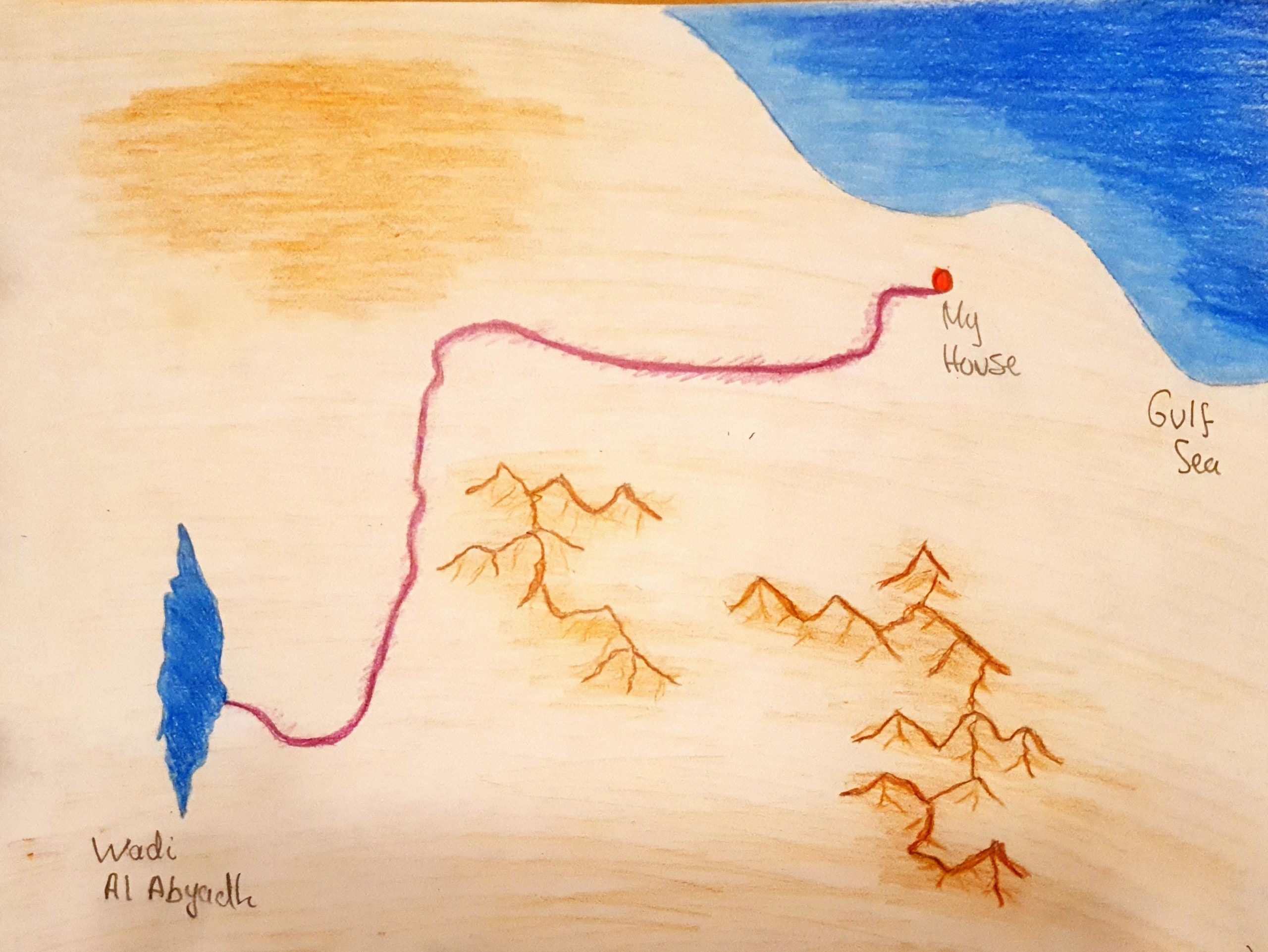Guest blog by Mayadhin Al Abri
Mayadhin Al Abri is a chemical engineering student at the University of Minnesota who grew up in Muscat, the capital city of Oman. She plans to address and solve environmental issues specifically water issues in Oman.
During my childhood in Oman, rain would fall once or twice a year. The moment the rain began, my sisters and I would scream, “It’s raining!” We’d run out to play in the rain until our clothes were wet. During those short rainfalls, my mom would say, “It’s time to pray.”
Oman is arid. Water scarcity is a major problem.
Groundwater used to be available for drinking, but population growth and consumption have reduced the water reservoirs so sea water has seeped into the water table. Salt has made the groundwater unfit for human consumption or agriculture.
Even though we usually have too little water, when a hurricane comes from the Indian Ocean to Oman, our desert county can experience flash flooding. If heavy rainfall comes quickly, water can damage our infrastructure and sometimes cause death.
Wadis—riverbeds that fill with water during rains and dry up at other times—are our best hope for conserving water and preventing flooding. Constructed channels called falaj use gravitational force to supply water to villages and farms nearby.
When I was young, my family and I would plan for two weeks to go to Wadi Al-Abyad to barbecue and swim. My parents would invite my uncles and aunts for a large family gathering. When we arrived, my younger sister and I would climb the mountains that surround the wadi. When we were halfway up, we’d hear my father call out, “Stop. I want to take a picture of you.” We would look down at him and see cactus and palms as well as a few donkeys or goats below us on the hillside.
When we climbed back down, we’d go swimming in the wadi with my cousins.
Just we were about to leave, my dad would say, “Anadhafa mina al-iman” – tidiness is required of God’s believers. My parents would insist that we gather other peoples’ soda cups, plastic plates, and food trash as well as our own.
I would protest against cleaning up after others, but dad would say, “Think what would happen if the trash goes into Wadi. We wouldn’t be able to swim any more. What would other animals drink?”
Because of climate change, some of the wadis have permanently dried up, and some hurricanes have become too powerful for the remaining wadis to protect us. When hurricane Gonu hit in 2007, water filled my uncle’s house to 12 inches.
Without wadis, Oman will need to rely increasingly on desalination of ocean water for humans and agriculture. But desalination, I have come to realize, is expensive and has justice problems for other nations and the ocean.
I realize how precious wadis are for me and for society back home. Wadis are a natural, sustainable way to provide water and protect from flood damage. We must protect the wadis we still have.
Note: You could find a map of Oman with wadis indicated by clicking HERE.
